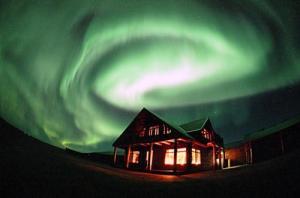 |
| Image |
Tuesday, April 12, 2011
Woah There Stranger!
Friday, January 14, 2011
Amazon Breakthrough Novel Award
Monday, September 6, 2010
On Word Count and Querying
Saturday, August 7, 2010
WriteOnCon
Okay, I'm putting my musings about self-publishing on ice for a bit. Yes, I'll study it, but I want to see if I can get trade-published first.
I joined WriteOnCon yesterday. I signed up on the forum, and I'm now an attendee at the free online conference on August 10-12th 2010. There are over 1400 people "attending", and I'll be able to post my query letter, first five pages, and first 250 words, first thing Monday morning. Then I'll possibly get critiques from fellow writers, and possibly publishers/agents/other trade people too. I already have some critiques on my practice critique of first five pages (you need to register on the forum to see it).
I'm also having fun writing critiques for others. I already wrote four yesterday and another four today. I leave the query critiques alone for now, because I don't feel too comfortable advising people on that since I'm not a 100% comfortable with query letter writing. I think the conference will be exciting. I can post questions for professionals, there will be rewards, and I'll meet other writers, and maybe make friendships or find critique buddies there.
I'll also join The Muse Online Writers Conference in October. That's also free, but it lasts a whole week. They have workshops that I'd like to check out. More on that later.
Monday, July 26, 2010
The Second Book
Goodness! Having the boys at home for their summer vacation is draining every ounce of energy from my mind. I meant to blog more often, but whenever I get a break, I just want to sleep or lie on the sofa and stare at the ceiling. Three year olds are loud, energetic, and attention suckers. I do hope you'll forgive me if my blogs seem a bit detached. Two more weeks to go...which means a month to go for Uni. Yup, that's right: I'm leaving a well paid job to go back to University in hope of pursuing my dream of becoming an author.
Since I've already had a two week break from the querying and writing, I've been re-thinking things a little. When the boys go to kindergarten again, I'll have two weeks until Uni starts (majoring in English this time, already have a bachelor's in marketing and administration). I could do what I was doing two weeks before the boys had their vacation: sit at the computer and read articles etc. and keep dreaming, or I could start writing the second book of the series. I think I'll go with the latter.
I'm both curious to see how the second book unravels, and I also think it's important to start writing it so that a) I can say that I'm already well on my way with the second book if I do get an agent interested, b) writing is fun and it's important to use the little time I have left to cram in as much writing as I can (I wrote the first manuscript in a month, so I should be able to get at least half of the book done in two weeks), and c) if I can't get a deal, I will feel more optimistic about e-publishing, because I've already started on the second book.
There's one other thing I haven't considered much, and that is to query publishers. There are many writers who query publishers first and then find an agent if they find an interested publisher. The other way would be more ideal, since the agent can negotiate the deal, but I think it would probably be easier to find an agent if you already have a contract ready to be signed from a publisher. Once I'm back at Uni, I'll probably spend some time compiling a list of publishers -- ones who consider unsolicited material. There's the problem, really, and the main reason writers try to get an agent first: not all publishers will consider manuscripts if the writers have no agent. This has put some unfair shift of work on the agents. Now it is they who have to sieve through the query letters, which seems more logical work for the publishers.
Anyway, as soon as the boys are back at kindergarten, I'll sit down and draft the second book. I already have readers related to me who are waiting for the continuum.
Wednesday, July 14, 2010
Lord of the Rings meets Me
My twins are on a month’s vacation from their kindergarten and they’re wearing me out! Due to this fact, I won’t have as much time to blog (or write *whine*), but I’ll try to get in two-three blogs a week.
I‘ve been reading a lot of books in my genre (YA fantasy), and I‘m especially interested in the vampire series. It is important to read a lot in your genre to be able to compare your work and see what works and what doesn‘t. While I read, I also try to think about what makes the book interesting, what keeps me reading, how chapters end, the much important “voice” (which is something I hadn't heard of until two months ago), how each chapter is constructed, and I look out for hints throughout the book and then guess at the ending (which has spoiled books for me, since I can often guess at the ending in the middle of the book). I then compare these things to my novel. I can say this: I read books in a whole new way since I started writing.
It‘s hard for me to find exactly what I need to compare my books to, other than the technical factors. If I were writing a vampire book, it would be easy to explain how it is different from other vampire books. I’d like to be able to do the “meets” thing—you know: Lord of the Rings meets Ella Enchanted meets Morganville Vampires, but all I can come up with is the Lord of the Rings because my land is medieval and there are wizards. There aren’t even dwarves in the land or dragons (which is why I can't use Eragon as a “meets”).
I suppose I could say Lord of the Rings with a dash of humor, pinch of romance, two spoonfuls of mystery and three cups of sexy darkness. That’s still not a good way to give people an idea of what it is. I intend to do a lot of reading this month of exhaustion and maybe I’ll come across a book that I’ll be able to use as a “meets”.
I’m often disheartened when I read really interesting books and I think that I’ll never get there, but then I remind myself that a) Stephenie Meyer was a miracle case and most writers have been writing for years before getting published, b) their manuscripts go through serious changes and rewrites with the aid of the publisher’s editorial team before they are ready, and c) my manuscript is darn good, so there’s no reason to put myself down. Again, I wonder if I should change the first chapters, but I decided two weeks ago that it was good as it is and I’d just have to have some faith.
I’ve also been thinking more about e-books and Kindle. If I would publish the series that way, I could just write and write, and it would urge me onwards just to have the next book out there. I know myself and know that even if I only had one reader out there, I’d finish the series because I’d know that there’s a person out there who likes my story.
I figure that if I continue to write a lot and publish books on Kindle, eventually some people will like what I write and will want to read the other books as well. They’ll tell their friends and so on. Of course I’d try to market myself on the internet, but I’d have to promise myself to be patient and not to be worried about slow sales to begin with. I want writing to be my career and this is one way to start it. Who knows, maybe an agent/publisher would notice my work out there and offer me a deal. I know that’s a dream-case scenario, but it has happened and will happen again.
The rejection toll is up to 14 now. All polite form rejections (which I appreciate). I respect that those 14 had the courtesy to reply; I know that many won’t. I’ll also have to sort through which I’m allowed to re-query (a different agent within the agency). I already re-queried the very first one that I queried over a month ago, but I haven’t heard back from her since I sent the re-queried letter last week.
Task for the day: Read.
Friday, July 9, 2010
Writing a Synopsis is Fun!

Thursday, July 8, 2010
More Agent Rejections!
Wednesday, July 7, 2010
My Query Synopsis
Saturday, July 3, 2010
Fun Facts about Iceland
Since I’m still working on my agency list, which is sneaky, time-consuming work, I thought I’d mention a few little facts about Iceland. They’re not all scientifically proven; this is just stuff from my head.
- If you walk through a field of tall grass, it is very unlikely that a bug will stick on you.
- Up until recently, Iceland only had very small spiders. A contractor I know of imported machinery and with them came rather large spiders with red and yellow bellies (eugh!). The contractor couldn’t be bothered to have them exterminated and so they’ve spread (thanks a lot).
- I have never seen a cockroach in Iceland. I’ve heard that there are some back at the old American base, and that they were discovered after the Americans left (thanks a lot).
- There are no ants in Iceland.
- When the American soldiers and their families left, they also left behind a lot of useful stuff, including playgrounds and gym equipment (thanks a lot!).
- There are not many rats in Iceland. In fact, I’ve never seen one with my own eyes. If I saw one, I’d probably think it was a big mouse.
- The largest wild animals (not including the very occasional polar bears that float on blocks of ice from Greenland/North Pole) are reindeers, but foxes are the second largest.
- Yes, I’ve seen a live polar bear. Not a wild one though. I’ve also seen live Orcas. The Orca was scarier.
- “Orka” is an Icelandic word for “energy”.
- Our clocks have 24 hours, meaning that we always write (and often say) 15.32 etc. Americans call it "military time"; we just call it "time".
- The northern lights (Aurora Boreales) are so common that I don’t really think of them as anything magnificent. I just think they're "cool". I grew up seeing the green lights, and I, with my wild imagination, could see little human figures walking upwards in a row. They peak every eleven years, and I’ve twice been awed by purple, red, orange, and pink lights dancing wildly in the sky (I’m not being poetic here, they were literally dancing). The lights in the pictures, by the way, are very cool.
- There is daylight 24 hours in June. That’s when Icelanders are very gleeful and chipper. That’s also when Icelanders go camping and drink a lot. I don’t drink alcohol and I haven’t - ever. No special reason, I just don’t want to.
- I know one other person who has never tasted alcohol in his life, and he happens to be my cousin.
- People always dress up before heading to the pubs/nightclubs.
- There is maximum 3 hours of daylight in December, when it is darkest. That’s when way too many Icelanders are depressed. We go to work in darkness and come home in darkness – but then we have Christmas to cheer us up.
- There was winter celebration in Iceland way before people were forced to take up Christianity here. The purpose was to cheer people up the gloom of darkness.
- People also dress up for clubbing in the winter - girls don't let the cold bother them and if short dresses/skirts and tank tops are in, they wear it.
- After the 2008 economic catastrophe, new and innovative businesses have been popping up everywhere. Every woman, it seems, was suddenly interested in knitting (including me), and former career women published a number of knitting books. More Icelandic knitting books have been published in the last two years than the last decade, and probably a decade before that, too.
I'll post more of these later when I have no news of my writing. I've compiled a list of 42 agents so far and I have some more to go. I didn't list the snail-mail ones and the one-man agencies, but I bookmarked them and I'll list them down later. This doesn't mean that I'm less interested in them, I just decided to work in this organised order: list big/medium agencies (tons), list snail-mail agencies (a handful), and then list one-man/woman agencies (a few more than the snail-mailers). I intend to query everyone.
Just for the record, it has taken me two whole days to list down the medium/big agencies and choose the right agent from each one. This is a lot more work than I thought it would be, and it'll be a lot of work to personalize every query (read the query guidelines from everyone and make sure everything's spiffy). I think I'll send the queries out in batches, maybe 5-6 at a time.
Task for the day: clean the apartment and continue listing agencies.
Tuesday, June 29, 2010
Dystopia: The New Utopia
There has been a lot of discussion about trends in the writing market recently. It seems that one can't really jump right into the current trend, because when one finally finishes the manuscript, agents/publishers are no longer accepting trend novels because the market is "filling up".
The YA trend has been vampires since Hurricane Twilight sent teenage girls racing to the bookstores. Everybody wanted to catch the gust and wrote vampire YA (books that I still greedily seek out). There is now an overflow of unpublished manuscripts and agents are rejecting all queries that have the word "vampire" in them.
The current and near-future trend seems to be YA Dystopia. I actually had to look up that word (anti-utopia), and I get it; I like watching movies where the world is inside-out after some catastrophe, and I should be able to enjoy such books as well. Of course, a dash of paranormal wouldn't ruin it for me.
When I read about the dystopia trend, I immediately thought that maybe I should try to write one, but by the time I'd get it done, everyone and their cousin will have sent out query letters and agents will be rejecting all queries containing the word "dystopia".
One might say that unpublished writers live in a dystopian world and are desperately trying to reach utopia. I think that the only chance writers have to ride the wave of trends is by either having manuscripts ready before the tide hits to be able to ship them out immediately when their genre is prophesied to be the next big thing, or to be abnormally fast at creating manuscripts, and risking the manuscript being rushed.
If you want to break into the market, you'll have to write what sells; and what sells is the current and next trend. Kristin Nelson recently talked about how most queries she's receiving today are about ghosts telling their stories, psychics solving a mystery, vampires (still, as she puts it), and people seeing things in dreams that lead them on an adventure. Apparently writers are expected to think outside the box and try to invent the next hype, but at the same time it is difficult to sell the manuscript because it involves a great risk to publishers.
I have tried to be innovative in my manuscript and created paranormal beings that I haven't seen before. Now the big, hairy and nasty question is: are they too innovative for the publishers to take the risk?
Thursday, June 24, 2010
When to Query
I was reading old blog posts from agents and came across an old post by Janet Reid. It has to be the most helpful post on how to keep on querying. I feel all perky and excited now, ready to take 'em on!
Ok, so I haven't actually sent out the query letters yet, but I'm going to...next Wednesday. I chose Wednesday for a strategic reason. After an hour of searching, I finally found theGatekeeper blog again. It basically says that an agent's inbox fills with queries over the weekend and on Monday they have loads to sort through. On Fridays they're too occupied with Friday-glee, that they're more likely to reject. The blog advises middle of the week. There are also lots of helpful advices in this post.
The Gatekeeper's The Middle Way: A new method of timing your queries suggests making a list of most desirable agents, medium ones, and the ones who just wound up on the paper. She also suggests to query first the medium desirable ones and see if you get any feedbacks. If you get only rejections or a few personalized feedbacks, you can work on your query letter before you query the ones who are truly desirable.
I like this approach; it's safe and you learn from it. What would worry me, however, is if some would want to sign me up and I wouldn't have queried the more desirable ones yet (a luxury problem, I suppose). Janet Reid suggest querying all, and not go by such a list. I haven't yet decided which method to choose; it's something I'll have to think about before Wednesday.
Gatekeeper is an excellent site with loads of information on querying. You can pick up on many hints on what not-to-do. This post has a pie chart on why she chose to say "yes" to a query, and another with a "no". I also love this post called Typical Day.
KT Literary made a really fun post where Daphne opens her query letters live and writes why they don't work. Lots of tips there.
I have studied these sites carefully, both for research on the market and agenting, and then for the dreadful querying.
Task for the day: Read a chapter and fix in the document.
Friday, June 18, 2010
Full Proposal Completed!
I finished my full proposal yesterday, and I feel incredibly accomplished! This means that all I need to do now is take a second look at the query synopsis before I send it out. I'm uncertain if I should send the Hollywood-action-blurp one, or the sedate-'stating what happens'-professional one. It seems that Query Shark would prefer the sedate one, but Heather Brewer has this nice action one that gave her nine out of eleven responses. But Heather's book is rated for kids of ages 9-12 on Amazon, and my book is for 14-22, or thereabouts. I wish I knew how Stephenie Meyer, Christopher Paolini and Cassandra Clare queried. Honestly, there should be a site with examples of the successful YA writers' query letters.
--> Have your query letter read for mistakes before sending it.
I have a problem. My fingers are itching to rewrite the whole first chapter and delete a chunk of the second chapter. I'm not sure if it's just an excuse not to send out the query yet (because the act of sending a query is terrifying to me), or if I'm truly unhappy with the first chapter. I suppose that if I look deep, I am happy with the first chapter, but it has a lot of backstory and doesn't "dive in" like many people suggest that first chapters should do. Still, I think it's beautifully written and it explains so much that needs explaining before the "point at which the action starts" (as Query Shark calls it). That point doesn't happen until the end of the second chapter/beginning of the third. And my chapters are loooong, I realized after I wrote the book. They're 7,000-8,000 words.
Kristin at Pub Rants says that the point of action should be within the first 30 pages. Mine is at page 33. I hope it doesn't make too much of a difference, but I'm now thinking that I could change the first chapter and delete a big part of the second to make that happen.
...Or maybe I'm just having a hard time letting go...
--> Learn to let go!
I asked Randy of how to do it and hope that he'll reply.
Task for the day: Look at nice queries and see if I can apply my novel to the recipe. Look at my already existing queries and see if I can make changes. Have my queries read to check spelling/punctuation.
Have a nice day!






















